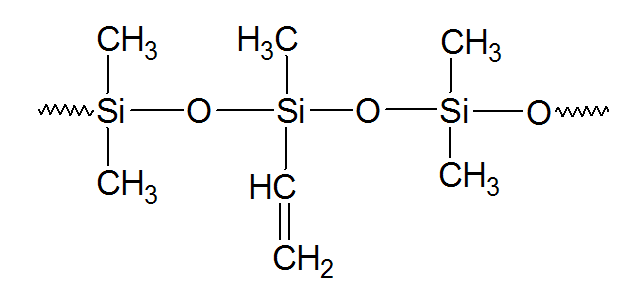Vinyl Methyl Silicone
(Silicone Rubber)
Properties and Applications
Vinyl methyl silicones (VMQs), also known as silicone rubbers, are synthetic elastomers that are ideal for high and low temperature applications. They have high heat and oxidative stability, outstanding low temperature flexibility, and are resistant to many chemicals, weathering, ozone and sunlight (UV). However, they are not resistant to super-heated steam and their physical properties are generally low but are usually retained at higher temperatures. They also have poor gas permeability, low tensile strength and elongation at break when compared to other synthetic rubbers and poor abrasion resistance.

The typical silicone rubbers are rather expensive in comparison to most other elastomers and are, therefore, only used when excellent resistance to chemicals, oxygen,
and weathering is needed. They are also used when biocompatibility is
required. Typical applications include surgical implants, wound dressings, mold making, wire and cable insulations, gaskets, seals, and tubings. Silicone elastomers are also used in pressure sensitive adhesives.
The typical working temperature range is -60°C to +250°C (-75° to 480°F). However, special grades will withstand temperatures up to 300°C (570°F).
Manufacturers & Distributors